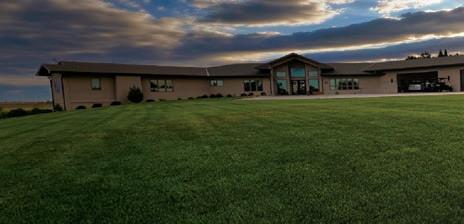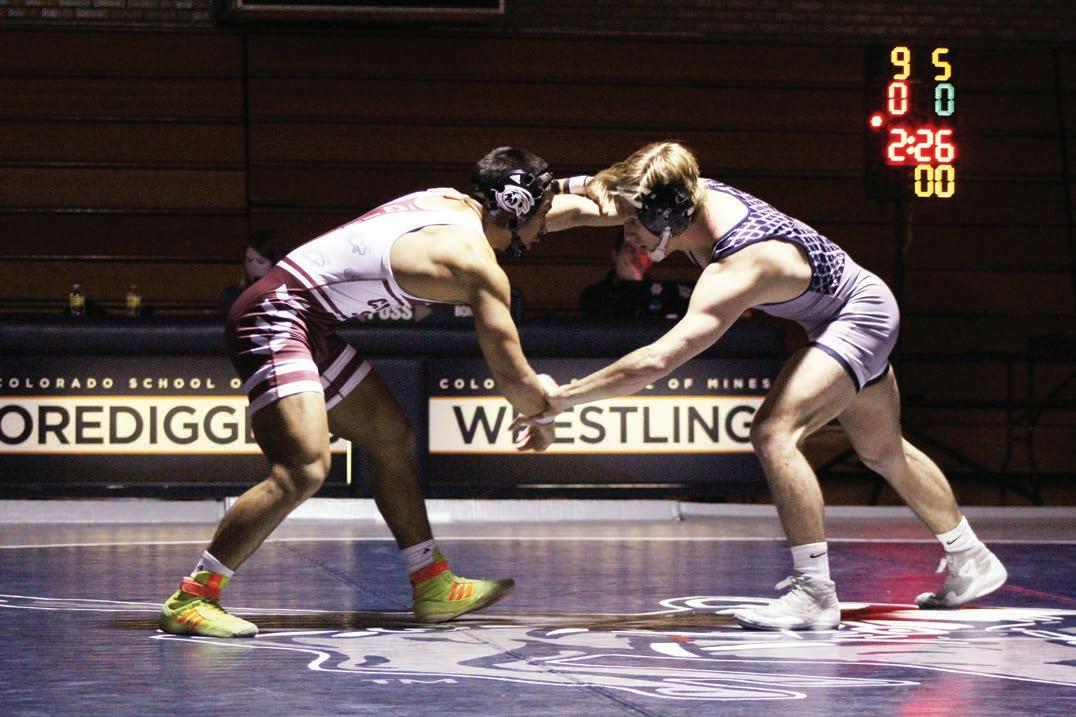
5 minute read
PUC responds to Polis’ call for utility relief
Searching for answers
BY JOSHUA PERRY THE COLORADO SUN


Colorado’s Public Utilities Commission on Feb. 8 discussed addressing bill price hikes in response to Gov. Jared Polis’s utility cost-reduction directive, but it isn’t clear what the rst steps will be.
Chairman Eric Blank said that the PUC has been tasked with a wide range of objectives to ease an a ordability crisis that made consumers’ utility bills 52% higher on average in December. Some consumers saw their bills double or even triple.
“Among other things, the governor has asked us to identify ways to support customers in the most dire circumstances, improve access to and the capacity of the bill assistance program, nd ways to incentivize utilities to reduce customer costs, analyze approaches for limiting bill spikes, and to expand public engagement on these issues before the end PUC,” he said.
Blank said he didn’t know how the PUC would take action on this directive right now, but they would continue addressing a ordability in the coming weeks.
One way the PUC can make progress is driving down base rates, Commissioner Megan Gilman said. Under the current rules, a utility seeking to add new infrastructure, such as transmission lines or a power plant, must rst convince PUC regulators that it is necessary. If PUC agrees, it issues a certi cate of public convenience and necessity to approve the request.
Once the project is in operation, the cost of the investment is passed on to consumers through an increase in base utility rates. PUC also has the power to set a return on investment rate, which determines the pro t that utility companies get from these investments. at ROI rate can contribute to higher prices as well.

Base rates have been increasing for years. Higher base rates make periods of extreme price pressure — usually resulting from high fuel costs or unusually cold weather conditions — even worse. e PUC can’t control those factors, but they can drive base rates down in the long run by limiting unnecessary investments by utility companies, Gilman said.
“What are we doing to really try to ensure that rate-payers are protected in the long run and (ensure) that those utility investments that end up being repaid by rate-payers are really the best use of that money, and the best option available?” she said.
Blank said that managing base rates will be part of the discussion on a ordability moving forward. Later at the meeting, the commission also approved updates to its policy for service disconnection reporting, which now will include data on areas with the highest proportions of disconnections in order to identify geographic disparities in access to utility services.
Additionally, they made plans to meet with assistance program coordinators and utility companies to improve the e ectiveness and ac- cessibility of low-income quali ed programs.
Access to sources of assistance like the Percentage of Income Payment Program, which limits utility costs for low income families to up to 6% of their monthly income, must be improved, according to Gilman. e PUC has taken some steps already to make its process open and easy to understand, she said, but there’s still much room for growth when it comes to working in a mode that engages the public on addressing longterm a ordability moving forward.
“ is is a massive issue, to take this agency and all of the sudden try to humanize, try to improve accessibility, try to improve language access, try to improve these opportunities,” Gilman said. “By no means do we have it all gured out.” is story is from e Colorado Sun, a journalist-owned news outlet based in Denver and covering the state. For more, and to support e Colorado Sun, visit coloradosun. com. e Colorado Sun is a partner in the Colorado News Conservancy, owner of Colorado Community Media. employees could issue a suspension. Similar problems were reported in Englewood, where last July, workers and patrons saw a man using a small, white tube to snort a white powdery substance o a table in the back of the computer lab. In Sep- tember, the city’s library sta found a pile of burned tin foil, a capped syringe and a plastic capsule of saline inside a handicap bathroom stall. Sta also found a backpack with needles and drugs inside the lobby, where security footage showed a man and a woman using the drugs minutes earlier.



More than once, patrons slipped sta notes saying that they believed drugs were being used in the men’s bathroom.
Less than a month before shutting down, a patron said he found what he thought was “a cooking kit.” Inside the small, black zippered case, there were several blades, a small plastic tube and a few small white rocks.
Days later, a nurse visiting the library advised workers to shut down the bathrooms because two people had been smoking fentanyl in the men’s room and the smoke was at dangerous levels. is story is from e Colorado Sun, a journalist-owned news outlet based in Denver and covering the state. For more, and to support e Colorado Sun, visit coloradosun. com. e Colorado Sun is a partner in the Colorado News Conservancy, owner of Colorado Community Media.
















Mines celebrates 11 senior wrestlers, beats Chadron State 26-18
BY CORINNE WESTEMAN CWESTEMAN@COLORADOCOMMUNITYMEDIA.COM





In March 2020, Anderson Salisbury was preparing to wrestle at the NCAA Division II National Championship when it was canceled because of COVID-19.
ree years later, he’s looking to win a national championship in his last season at Colorado School of Mines.
“I think that’s a big reason why I ended up coming back, because I didn’t get an opportunity to compete at that national championship,” said Salisbury, a six-year Mines wrestler who’s set to graduate with a master’s degree in robotics and automation this spring.
On Feb. 9, the Mines wrestling team recognized 11 fourth-, fthand sixth-year seniors before its Senior Night dual against Chadron State. e Orediggers went on to defeat the Eagles 26-18 in Mines’ nal home dual of the season.
“It’s a really high-emotion night for a lot of us,” fth-year senior Teague Dilbeck said. “ … (Mines) is a great place to be an athlete. We succeed at a very high level athletically and academically. … I’m just very grateful for the opportunities I’ve had here.” e 149-pound wrestler commented how his fth year has been a special one, as it was his rst year starting in a dual. e Chadron State dual had a scary start for the Orediggers, as 125-pound wrestler Christian Lopez was injured in the night’s rst match. e Eagles took a 9-0 lead in the rst two matches, and the Orediggers generated some momentum o victories at 141 and 149.
Like Salisbury, Dilbeck said he was “pretty decided” about using his extra year of eligibility, adding that he knew he wanted to get a master’s degree. He plans to graduate with a master’s in engineering technology and management and has a job lined up with a civil consulting company doing airport design.
On Feb. 9, he won 4-3 in a close decision, saying he wanted to put it all on the line for Senior Night.

Later matches gave the Orediggers a lead, and Salisbury sealed the dual victory with a win by fall at 197.
“It was a good way to end it — a tech and a pin,” Salisbury said of his Senior Night match. “I probably could’ve done it a period sooner, but it’s still pretty cool.”
All that remains for the seniors is their postseason matches. e Orediggers will compete at NCAA Super Region VI championships Feb. 25 in Chadron, Nebraska. Dilbeck and Salisbury explained how 11 schools compete, and the top three wrestlers in each weight class advance








